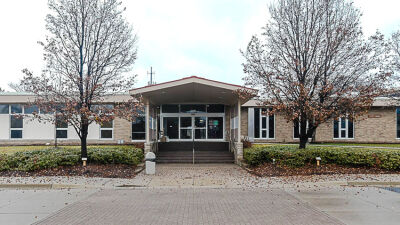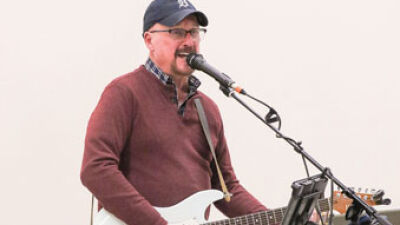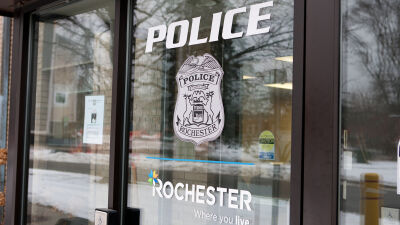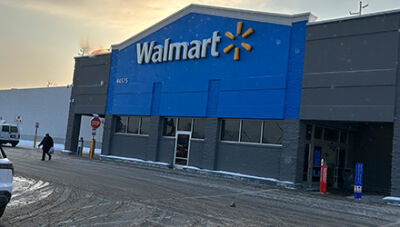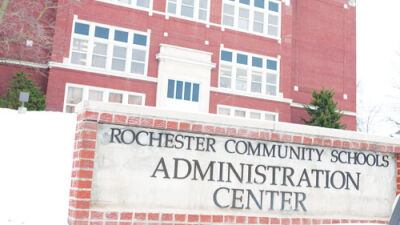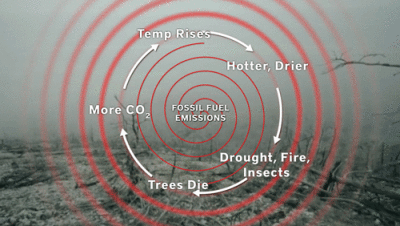
This infographic illustrates the earth’s natural warming loops, as spurred on by manmade activity.
Photo provided by Citizens’ Climate Lobby
HAZEL PARK — A nonpartisan group will lead a discussion at the Hazel Park District Library about how the Earth is warming itself and manmade activity is making it worse, leading to extreme weather events and shifts in climate that have scientists very concerned.
Citizens’ Climate Lobby, or CCL, will host its screening of the “Feedback Loops” short film series at the library, 123 E. Nine Mile Road, starting at 6:30 p.m. Wednesday, Sept. 7.
Attendees will also have the chance to meet CCL volunteers, and learn what they can do to help.
Alex Selsley is one of those volunteers. He explained that CCL is a nonprofit that works with congressional representatives and senators on both sides of the aisle to try and build consensus toward action on climate change. The group pushes for evidence-based solutions with broad appeal.
“Scientists’ concerns boil down to this,” Selsley said via email. “These feedback loops threaten to spiral out of control, and take the climate’s fate out of our hands.”
He said there are four main mechanisms his group will detail during the presentation. The first is albedo — a measure of a surface’s ability to reflect sunlight. Light-colored surfaces, such as the polar ice caps, reflect up to 85% of sunlight back into space. Selsley said that as arctic sea ice melts, more of the area it once covered becomes exposed ocean. Ocean waters are darker and reflect less than 10% of incoming sunlight back into space. That means the other 90% of the sun’s energy makes the sea warmer. This then melts even more ice, which exacerbates the cycle.
The next factor is permafrost, or permanently frozen ground. As the earth warms and the permafrost melts, organic matter that had been frozen in the ground releases carbon into the sky. Scientists predict that 150 billion tons of carbon will be released from permafrost into the atmosphere by the end of the century.
In addition, while the permafrost is thawing, microbes are breaking down the exposed organic matter into methane — a greenhouse gas that is nearly 30 times stronger than carbon dioxide, warming the earth even faster.
The third factor lies in the destruction of forests. As climate change kills trees with drought, heat waves, diseases and wildfires, the trees release carbon dioxide as they die and decompose.
The final factor is the way weather is impacted, Selsley said. The Arctic is warming nearly four times faster than the rest of the world. As it warms, the jet stream air current that encircles it weakens. This causes the jet stream to zigzag farther north and south. Warm air from the south then circulates up north, which worsens the Arctic’s warming, which then further weakens the jet stream.
“What all of these things have in common is that they are mechanisms that are caused by — but also contribute to — global heating, and form a vicious cycle,” Selsley said. “It is the release of greenhouse gases by human activity that triggered these feedback loops, but these feedback loops are now exacerbating the problem.”
Analicia Hazelby is a Hazel Park resident, and the leader of CCL’s Greater Detroit Chapter.
“The concern scientists have is that we will reach a point of no return,” Hazelby said via email. “The effects from climate change are a threat to our wellbeing and livelihood. Everywhere around the world is facing issues from extreme weather events, which are already disrupting supply chains and agriculture, among many other things. There is a chance that we can change this outcome, but only if our legislators act swiftly and take accurate measures.
“The plans that we have in place now will not lead us to the goals that will keep our planet the way it is, or sustainable,” she added. “Unfortunately, the Intergovernmental Panel on Climate Change has already declared there is no chance of humans reversing climate change to ‘normal.’ We need to tell our lawmakers that we want change now.”
The most immediate course of action, Selsley said, would be to dramatically reduce mankind’s own greenhouse gas emissions. He said that the Inflation Reduction Act contains provisions that are estimated to reduce greenhouse gas emissions from the U.S. down to 40% below their peak by 2030 — “a step in the right direction, but more is needed,” Selsley said.
To this end, CCL is advocating for a revenue-neutral carbon fee and dividend.
“This is a market-based solution that has been proven effective in other countries. It would bolster American manufacturing, help keep us globally competitive, and provide a mechanism with which we can complete our transition to net-zero emissions while keeping money in American families’ pockets,” Selsley said.
Hazelby noted that a carbon fee and dividend is supported by more than 3,500 economists and would be the quickest way for the U.S. economy to reduce emissions. She also described a “carbon border adjustment mechanism,” or CBAM, which charges a fee on imports from countries that do not have a carbon fee.
“It protects manufacturers from seeking carbon-intensive products from other countries, thus protecting the American economy,” Hazelby said. “Other countries are catching on. Canada has a form of a carbon tax, as well as the (European Union).”
But in the meantime, what can regular people do?
“The easiest and single most important thing people can do is to not be afraid to talk about climate change — with their friends, neighbors and relatives,” Hazelby said. “The second easiest and most important thing is to vote for elected officials who know that climate change is a threat, and who are ready to act to make a difference.
“Here in Hazel Park, we are no stranger to the effects of climate change, from flooded basements and power outages to drastic changes in weather,” she said. “It’s unfortunate that previously climate change has taken a political side, when it never should have been politicized — which is why I joined this nonpartisan organization. We need to mobilize and educate every citizen on these critical issues.”
Selsley said that everyone should want to leave a habitable world for future generations.
“What we are facing isn’t summers being a few degrees warmer and hurricanes a little more frequent. It is ecological collapse — the destruction of the natural systems upon which human survival is dependent,” Selsley said. “It can be halted and reversed with immediate, decisive action. Anyone can be a part of bringing about this action. Becoming educated is a useful step that gives you a better understanding of our predicament and empowers you to take informed action.”
Hazelby said she has met many people who are in deep despair over climate change. She is motivated by the Robert Swan quote, “The greatest threat we have to this planet is the belief that someone else will save it.”
“The situation is so dire, and sometimes as humans we can feel so helpless that we will make any change,” Hazelby said. “Action is the antidote to despair. I encourage (people) to get involved in any way that they can. When we come together with one another, we can make anything possible.”
 Publication select ▼
Publication select ▼

